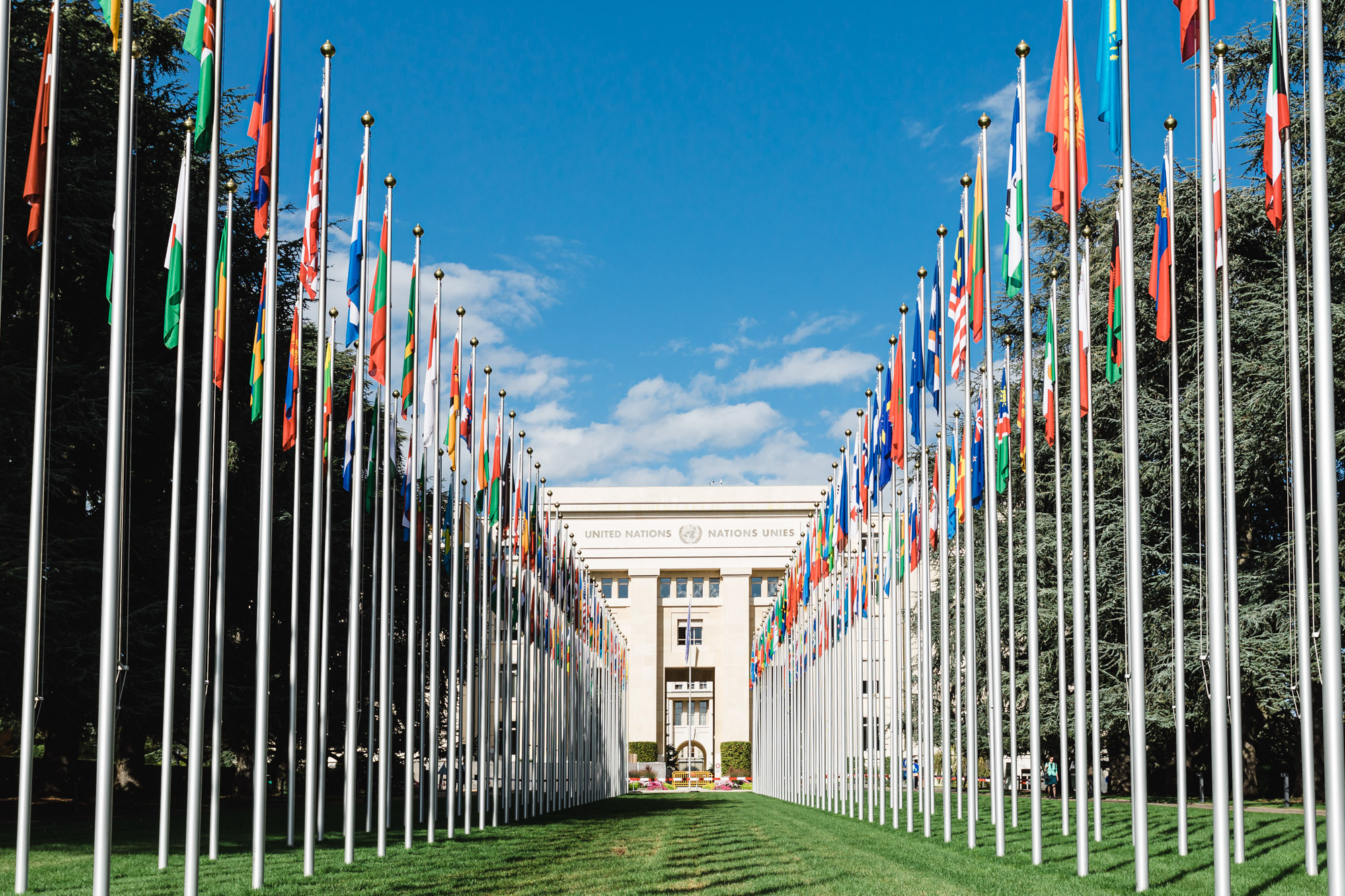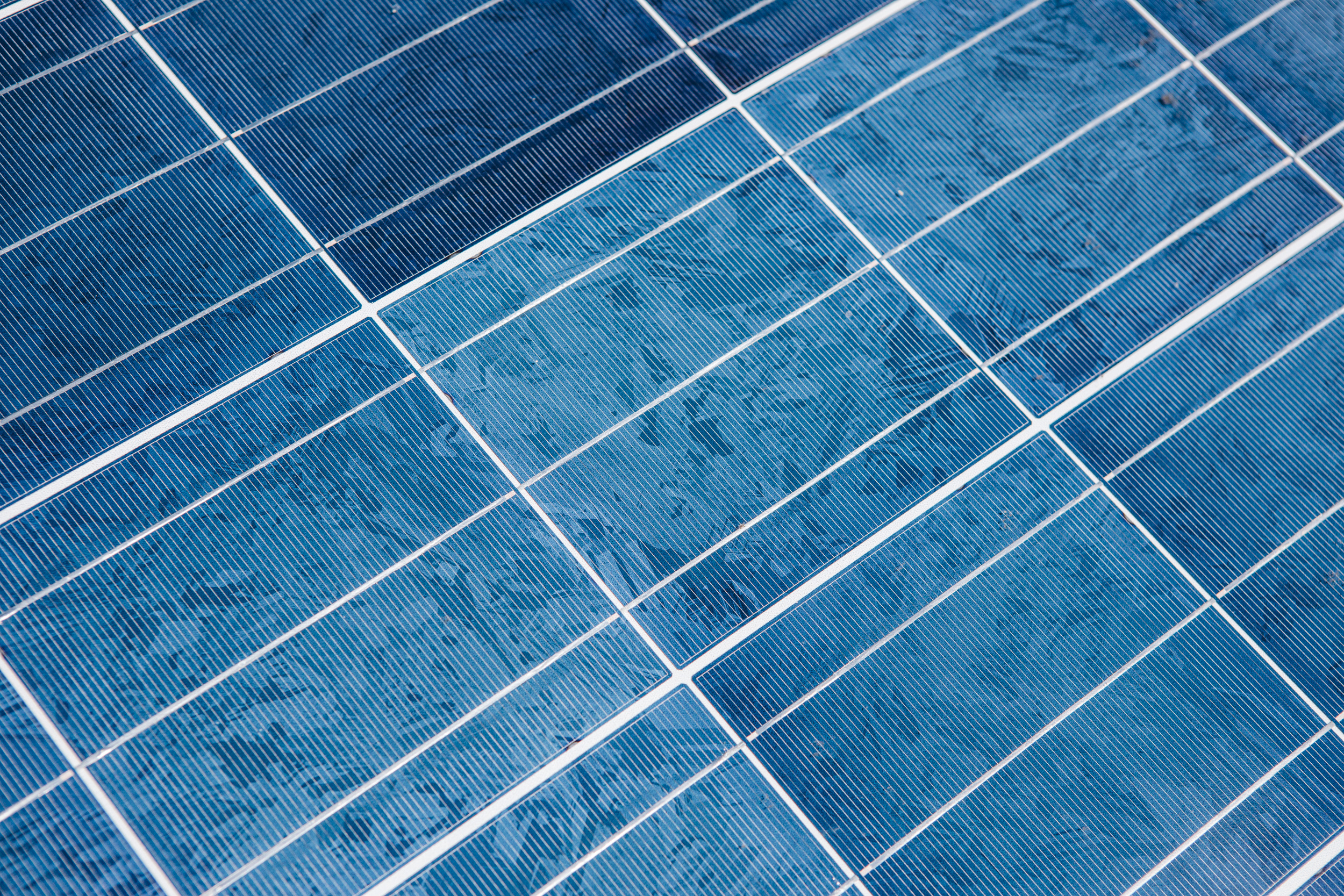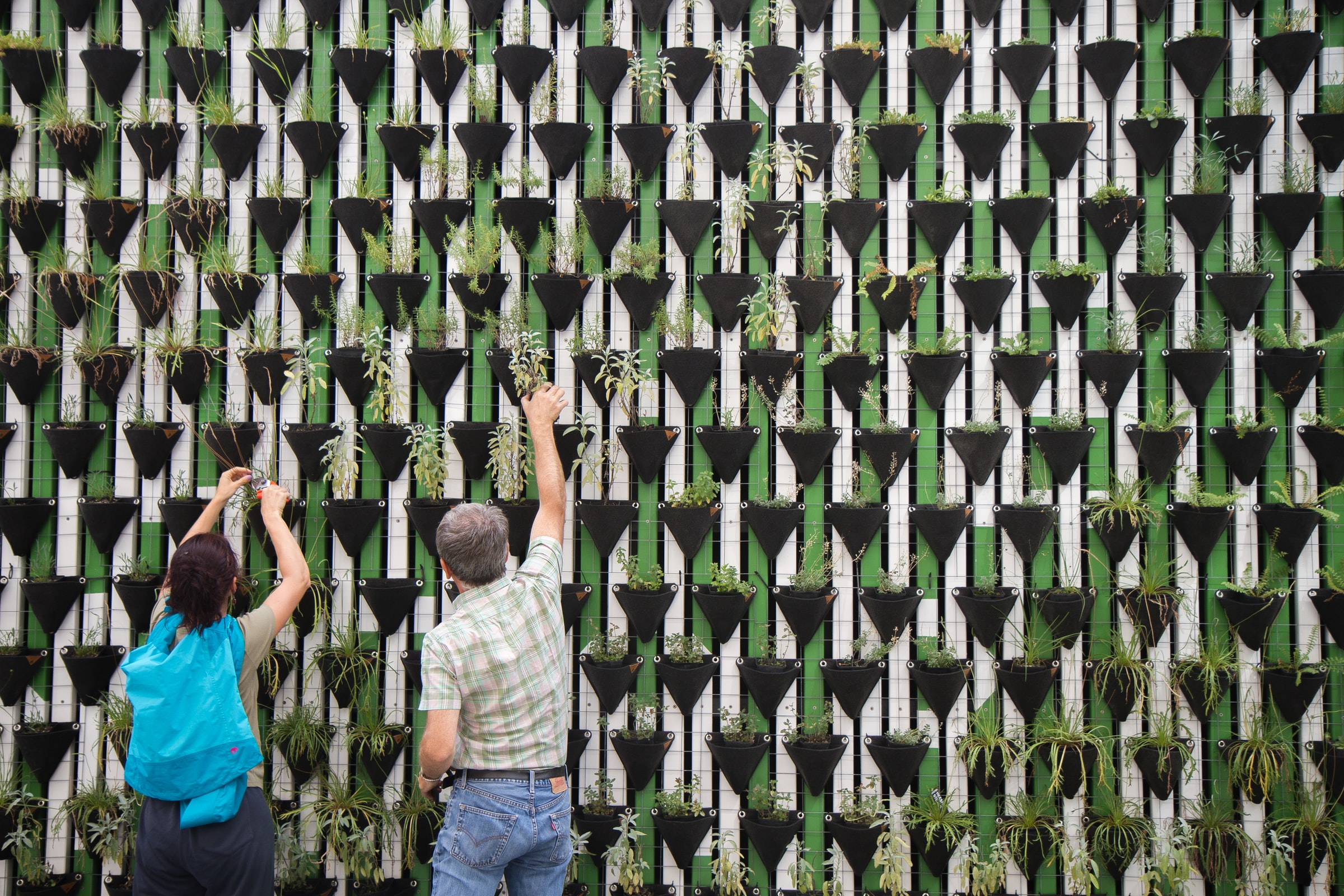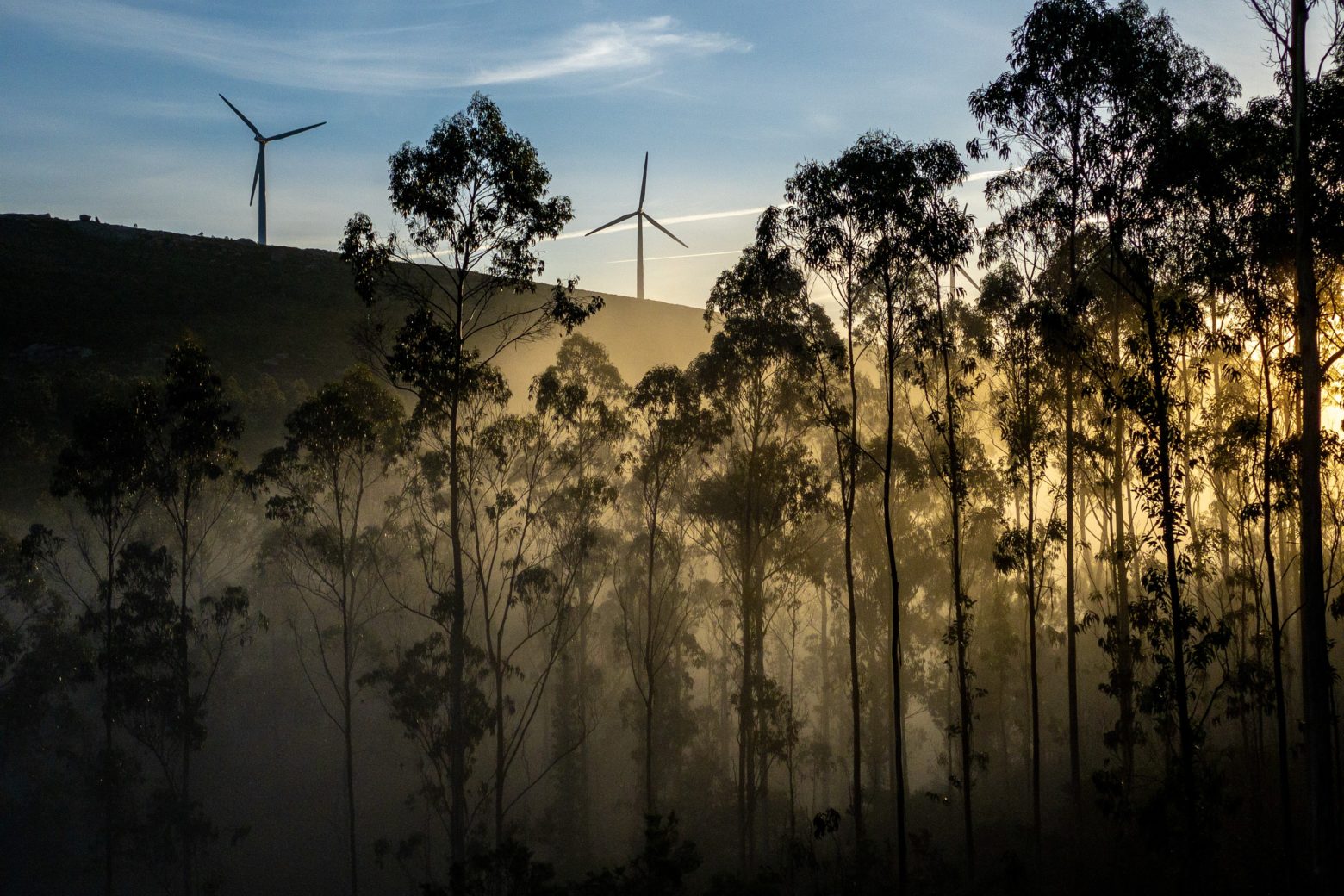Wind energy: how did we get here and what’s next? A brighter future: tackling the climate crisis and protecting free-flowing rivers. Renewable energy, jobs and sector market report 2021. Future-proofing cities: transitioning towards sustainable and resilient urban spaces. Reducing greenhouse gas emissions by reducing food loss and waste. How to establish a right baseline for rigid methane mitigation policies. Addressing competitiveness in industrial decarbonisation. Discover these and more online events of the week!
You can also subscribe to Climate Online’s newsletter to be reminded about weekly event updates by e-mail:

Biodiversity & Environment
30 November, 14:00 – 15:00 CET
“Ocean Watch Launch” by World Resources Institute – WRI
This webinar will launch Ocean Watch, a new open data platform for the global ocean produced by WRI that provides a curated access to data to support users understand the often-complex interactions between land and sea and integrate stakeholders in the reducing coastal pollution. The platform will help foster a move toward policies rooted in integrated ocean management in line with the recommendations of the High Level Panel for a Sustainable Ocean Economy.
30 November – 1 December
“European Business and Nature Summit” by European Commission, Business and Biodiversity and other
Business leaders and policymakers will meet at the high-level political and technical forum to capitalise on the growing awareness that businesses impact and depend on nature and the ecosystem services it provides. They will aim to mobilise the business community and strengthen the European “Business for Biodiversity movement” called upon by the EU Biodiversity Strategy for 2030.
2 December, 20:00 – 21:00 CET
“A Brighter Future: Tackling the Climate Crisis and Protecting Free-Flowing Rivers” by WWF
Our planet faces a threat like no other in human history – climate change. We must act now to accelerate the renewable energy revolution and dramatically reduce greenhouse gas emissions. But we must avoid harming nature and communities in the process. Poorly-sited renewables (including wind, solar and hydropower) could exacerbate the global biodiversity crisis and fuel local conflicts, which could even slow efforts to transform power grids and tackle climate change. Hydropower in particular — which has long been the world’s dominant renewable energy source — can cause significant negative impacts on rivers and the people that depend on them. Fortunately, we can minimize negative impacts on nature by investing in the right renewables in the right places. Join to hear Jeff Opperman, WWF’s lead global scientist, discuss strategies to meet global climate and energy goals without driving greater nature loss, sacrificing the world’s last free-flowing rivers, or harming communities.

Climate Science & Policy
29 – 30 November
“FSR Climate Annual Conference 2021” by Florence School of Regulation – FSR
The conference will cover the main climate-related existing policies at EU, national, international and sub-national levels. It will include three sessions on Energy Efficiency and Renewables, Environmental taxation, and Emissions trading. In addition, the conference will comprise a keynote speech from Estelle Cantillon, and a policy session focused on carbon market integration.
29 November, 10:00 – 12:00 CET
“Addressing Competitiveness in Industrial Decarbonization” by European Roundtable on Climate Change and Sustainable Transition – ERCST
This meeting aims at discussing the future of the free allocation regime in the EU and the role of the ETS in encouraging abatement in the EU industrial sectors. Particularly, speakers will be encouraged to share their views on the following topics: (1) The impact of the Fit for 55 package on the EU industry competitiveness; (2) The future of the free allocation regime and the consequences for EU businesses; (3) The role of Carbon contract for differences and ETS funds in promoting industrial decarbonization; (4) The Commission proposal to limit the size of the MSR to 400 million allowances; (5) The desirability of flexibility mechanisms for installations when complying with ETS obligations.
29 November, 20:00 – 21:00 CET
“A Global Commission on Governing Risks from Climate Overshoot” by Harvard Kennedy School
Join a discussion with speakers: (1) Adrien Abecassis, French career diplomat, a Fellow at UCLA Emmett Institute on Climate Change and the Environment and at HKS’ Mossavar-Rahmani Center for Business and Government and a Director of Research at the Paris Peace Forum; (2) Ted Parson, Dan and Rae Emmett Professor of Environmental Law and Faculty Co-Director of the Emmett Institute on Climate Change and the Environment.
1 December, 14:00 – 16:00 CET
“How to establish a right baseline for rigid methane mitigation policies” by Florence School of Regulation – FSR
The debate will start with the discussion on the current state of methane science with the presentation on methane in the recently published findings of the Working Group I (WGI) contribution to the IPCC Sixth Assessment Report (AR6). Subsequently, the webinar will use two case studies from Romania and Australia to give insight into the issues experienced by the researchers who worked on these projects. In the second session, the discussion will focus on possible solutions. In particular, the key areas for further efforts needed to help underpin this important building block of an effective Measurement, Reporting, and Verification (MRV) regime will be discussed.
1 December, 16:00 – 17:00 CET
“EU Energy: Green and Connected beyond EU Borders” by International Association for Energy Economics – IAEE
The EU Green Deal is the centerpiece of the EU strategy to transform Europe into the first carbon-neutral continent. The Green Deal, although aimed first and foremost at EU Member States, has important implications for EU neighbors and trading partners. The webinar will examine the external dimension of the EU Green Deal, review coal phase-out initiatives in the EU, the Mediterranean and around and give a perspective on efforts for better connecting markets South and North of the Mediterranean.
1 December, 21:30 – 23:00 CET
“America in One Room: Climate and Energy. Discussion Results from a National Deliberative Poll” by Stanford University
“America in One Room: Climate and Energy”, a Helena project, is the largest controlled experiment with “in-depth deliberation” ever held in the U.S. It addressed this question: What would the American public really think about our climate and energy challenges if it had the chance to deliberate about them in-depth, with good and balanced information? If the American people—or in this case, a representative sample of them—could consider the pros and cons of our different energy options, which would they support? Which would they cut back on? What possible paths to Net Zero would seem plausible to them? Which proposals would they resist? Can the public arrive at solutions to our climate and energy dilemmas that transcend our great divisions, especially our deep partisan differences? Can they also find common ground across differences in age, race, and region?
2 December, 16:00 – 17:00 CET
“Make or break – financing the transition to net-zero” by The Economist
With COP26 behind us, join HSBC and Economist Impact as we ask how business, finance and policymakers can work together in 2022 and beyond to drive change through collaboration. What did we learn from COP26 and how do we ensure the momentum is continued?

Renewables & Energy Transition
29 November – 15 December, 10:00 – 11:30 CET
“Long-Term Energy Scenarios For Developing National Energy Transition Plans In Africa” by International Renewable Energy Agency – IRENA
Long-term energy scenarios (LTES) have been used as effective tools for energy planning by various governments. In the face of the clean energy transition, transformative change is envisioned not only within the energy sector and but also for society at large. The use of energy scenarios in energy system master plans and integrated resource plans is common in the African continent. Some countries have planning teams within the government, while others rely on external consultancy while building internal capacity. Some countries have institutionalized their planning practices, while others tend to have a more ad-hoc approach. The LTES Africa Week features speakers from 10 African countries that have well established scenario-based planning practices. The country presentations will be made by senior government officials specialized in scenario-based planning. The presentations will be carried out in 5 sessions throughout the week.
29 November, 18:00 – 19:00 CET
“Designing Policy to Accelerate Energy Innovation towards Net Zero” by Harvard Kennedy School
Join us the seminar featuring Laura Diaz Anadon, Professor of Climate Change Policy, University of Cambridge.
30 November, 13:00 – 13:30 CET
“Renewable Energy and Jobs” by International Renewable Energy Agency – IRENA
This webinar event will discuss the main findings from the recent IRENA report Renewable Energy and Jobs – Annual Review 2021 and highlight the importance to build and strengthen domestic supply chains and the increasing need for expanding skills in all regions of the world to create a capable renewable energy workforce. In addition, the webinar will also discuss the policy framework required to bring together labour market incentives, industrial policies, and further needs to adopt social protection measures.
30 November, 17:00 – 18:30 CET
“Introducing Energy Superhub Oxford: a world leading urban decarbonisation project” by University of Oxford
Energy Superhub Oxford is a £41 million project helping to create the low carbon infrastructure Oxford needs to achieve net zero. This pioneering project is showcasing hybrid battery storage, ultra-rapid electric vehicle charging, low carbon heating and smart energy management technologies to cut carbon and improve air quality.
1 December, 11:00 – 11:45 CET
“Renewables Market Report” by International Energy Agency – IEA
Renewables 2021 is the IEA’s primary analysis on the sector, based on current policies and market developments. It forecasts the deployment of renewable energy technologies in electricity, transport and heat to 2026 while also exploring key challenges to the industry and identifying barriers to faster growth. Renewables are the backbone of any energy transition to achieve net zero. As the world increasingly shifts away from carbon emitting fossil fuels, understanding the current role renewables play in the decarbonisation of multiple sectors is key to ensuring a smooth pathway to net zero. In addition to providing detailed market analysis and forecasts, Renewables 2021 also explores trends to watch including storage, producing hydrogen from renewable electricity, stimulus packages, aviation biofuels and residential heating.
1 December, 12:00 – 13:30 CET
“Energy Efficiency Hub Launch” by International Energy Agency – IEA
Fifteen countries and the European Commission, representing over 60% of global primary energy use, have together founded the Energy Efficiency Hub as a platform for global collaboration. They will pursue energy efficiency solutions through Task Groups focused on topics of common interest, informing Members’ policy-making and communicating emerging best practices. The event will showcase Task Groups including the Digitalisation Working Group, the Super-Efficient Equipment and Appliance Deployment Initiative (SEAD), and the TOP TENs Task Group on best technologies and practices. Dr. Fatih Birol, Executive Director of the IEA, which hosts the Hub Secretariat, will make an opening address.
1 December, 15:00 – 16:00 CET
“Recent IEA Analysis from the Energy Efficiency Market Report 2021” by Leonardo Energy and European Copper Institute
As part of the User-Centred Energy Systems Technology Collaboration Programme Academy, this webinar presents findings from the IEA’s annual update on global developments in energy efficiency, including: (1) recent trends in energy efficiency markets at the economy-wide and sectoral levels; (2) the role of energy efficiency in delivering net zero by 2050, building on the IEA’s Net Zero Report; (3) how digitalisation is changing the scale and scope of energy efficiency.
1 December, 20:00 – 21:30 CET
“Destined for Decline? Examining the Role of Nuclear in the Ongoing Energy Transition” by Harvard Kennedy School
Nuclear energy is at a crossroads. Some view nuclear as a key technology to address climate change, while others see an industry in decline. Jochen Markard and Alejandro Nuñez-Jimenez examine empirical indicators at the global scale to assess whether or not (conventional) nuclear energy is in decline. They find that an eroding actor base, the break-up of existing networks, or a loss of legitimacy are clear indications of decline. Also, increasingly fierce competition from wind, solar PV, and energy-storage technologies speaks against nuclear power…
2 – 3 December, 9:00 – 11:30 CET
“Workshop on Sustainable and Energy Efficient Buildings and Cooling in Southeast Asia” by International Energy Agency, ASEAN Centre for Energy and ASEAN Secretariat
In line with COP 26 and its overall intention to drive further climate improvements, this virtual workshop will bring together expert policy makers, academics, architects and engineers, and industry representatives from across Southeast Asia to share knowledge, experience towards establishing a pathway towards a net zero energy scenario. Day 1 will focus on the importance of sustainable cooling for ASEAN Member States and examine the design and implementation of effective policy packages for sustainable cooling, with a technology focus on air conditioners and electric fans. Day 2 will focus on the importance of policies to support energy efficient building design, development and construction, operation and energy systems in ASEAN, as well as examine gaps and strategies for implementation of effective policy packages to support net-zero carbon, energy efficient and resilient buildings.
2 December, 14:00 – 14:45 CET
“IRENA’s World Energy Transitions Outlook: 1.5°C Pathway” by Florence School of Regulation – FSR
This online event aims to present the upcoming International Renewable Energy Agency’s report “World Energy Transitions Outlook: 1.5°C Pathway”. The report identifies options to limit global temperature rise to 1.5°C and bring CO2 emissions closer to net zero by 2050, offering high-level insights on technology choices, investment needs and the socio-economic contexts of achieving a sustainable, resilient and inclusive energy future. After a presentation of the report by IRENA, the FSR Energy & Climate team will discuss the findings and insights from different perspectives.
2 – 3 December, 15:00 – 17:30 CET
“Offshore Wind: Today’s Challenges and Tomorrow’s Opportunities in the U.S.” by Resources for the Future – RFF
The Biden administration has set a target of 30 gigawatts of operational offshore wind capacity by 2030 as part of larger efforts to halve US emissions by the end of the decade and achieve net zero by midcentury. According to the Department of Energy, this goal would support 77,000 jobs, generate enough electricity to power more than 10 million homes, and cut 78 million metric tons of carbon dioxide emissions. However, the US offshore wind industry is still nascent and myriad obstacles remain before such an ambitious goal can be realized. It requires coordinated action from states and the federal government, and the policies, and market structures that are put in place today will have a huge impact on the future of the industry and its ability to deliver on the promise of clean energy, jobs, and technology. Join RFF for a virtual workshop, where we will address and identify key policy, market and finance issues that will impact the direction of the offshore wind industry in the United States.
2 December, 16:00 – 17:30 CET
“Job creation and workforce development for building renovation” by Buildings Performance Institute Europe – BPIE
Both the new US administration and the European Commission repeatedly point out that an investment in green technology (including refurbishment of the building stock) is a job creator. What are the actual numbers? What kind of jobs are created (high vs. low value jobs)? Which types of jobs are replaced? How sustainable is this job creation? The webinar will focus on energy efficiency as a jobs multiplier to create more and better jobs in multiple sectors of the economy. Speakers from both sides of the Atlantic will discuss training opportunities and initiatives greening the job market.
2 December, 17:00 – 18:00 CET
“The Hydrogen Revolution: Clean hydrogen’s role in the energy transition” by Atlantic Council Global Energy Center
Join virtually for a discussion on growing momentum behind clean hydrogen as a decarbonization solution in the United States and beyond. Hear from key policymakers and industry leaders about the potential for hydrogen to play a key role in the energy transition and how that potential can be unlocked through policy and investment.
2 December, 18:00 – 19:15 CET
“Wind Energy: How Did We Get Here and What’s Next?” by Center on Global Energy Policy at Columbia University
Much of the current dialogue from energy policy makers focuses on existing technologies; this forum will instead address what is next in new and emerging technologies. The forum will help inform the audience of the state of various technologies, their prospects to make further contributions to the energy mix, and how these technologies should be further invested in, from basic discovery through deployment. The discussion will examine how wind technology evolved from the technology failures and bankruptcy era of 2000 to the industry we see today.

Sustainability & Circular Economy
30 November, 11:00 – 12:00 CET
“Future-proofing cities: transitioning towards sustainable and resilient urban spaces” by The Economist
In stimulating urban activity, city governments are creating opportunities to align recovery initiatives with environmental and social goals. Central to making built environments more sustainable is a focus on multi-stakeholder engagement and investment. Now more than ever there is a chance, even a need, to reimagine the plan, design and fit-out of built environments to ensure they are adaptive, resilient and long-lasting. The questions participants will seek to address include: What steps are companies taking to decarbonise their portfolios? What are the risks of failing to decarbonise their assets? How difficult will it be to reach environmental, social and governance (ESG) objectives within the built environment? And how are different stakeholders rising to the challenge? What role are data and technology playing in the transformation of the built environment?
1 – 3 December
“Trade + Sustainability Hub” by International Institute for Sustainable Development – IISD
Join the virtual space for civil society, government, business, and international organizations to discuss trade and sustainable development linkages. The event aims to help develop policy solutions oriented toward advancing a more sustainable trade regime.
1 December, 16:00 – 17:15 CET
“Crafting Public Incentives for Low-Carbon Agriculture To Ease the Global Land Squeeze: Policy Dialog” by World Resources Institute – WRI
Agriculture has transformed our landscapes for centuries and shaped the development of our societies. But its expansion has occurred at the expense of forests and other natural ecosystems, harming biodiversity, soil and water quality, and the other ecological services that maintain human wellbeing. Government policies that protect and restore degraded ecosystems must include funding to promote a low-carbon agriculture that can sustainably feed 10 billion people by 2050. This public policy dialog will bring together experts from Latin America and India to highlight the importance of policies that restore soil and biodiversity across agricultural land.
2 December, 16:00 – 17:15 CET
“Reducing Greenhouse Gas Emissions by Reducing Food Loss and Waste: Guidance for Companies” by World Resources Institute – WRI
Companies around the world are increasingly focused on ways to reduce their climate footprint. 1,500 companies now have set Science-Based Targets and many companies are setting Net Zero Targets. Reducing food loss and waste in a company’s operations and supply chain is an underappreciated approach for reducing its greenhouse gas emissions (GHG). This event will dive into new guidance on how companies should quantify the GHG benefits from reducing food loss and waste, how to incorporate these reductions in their company inventories and science-based GHG reduction targets, and how to communicate about the climate benefits of reducing food loss and waste.

